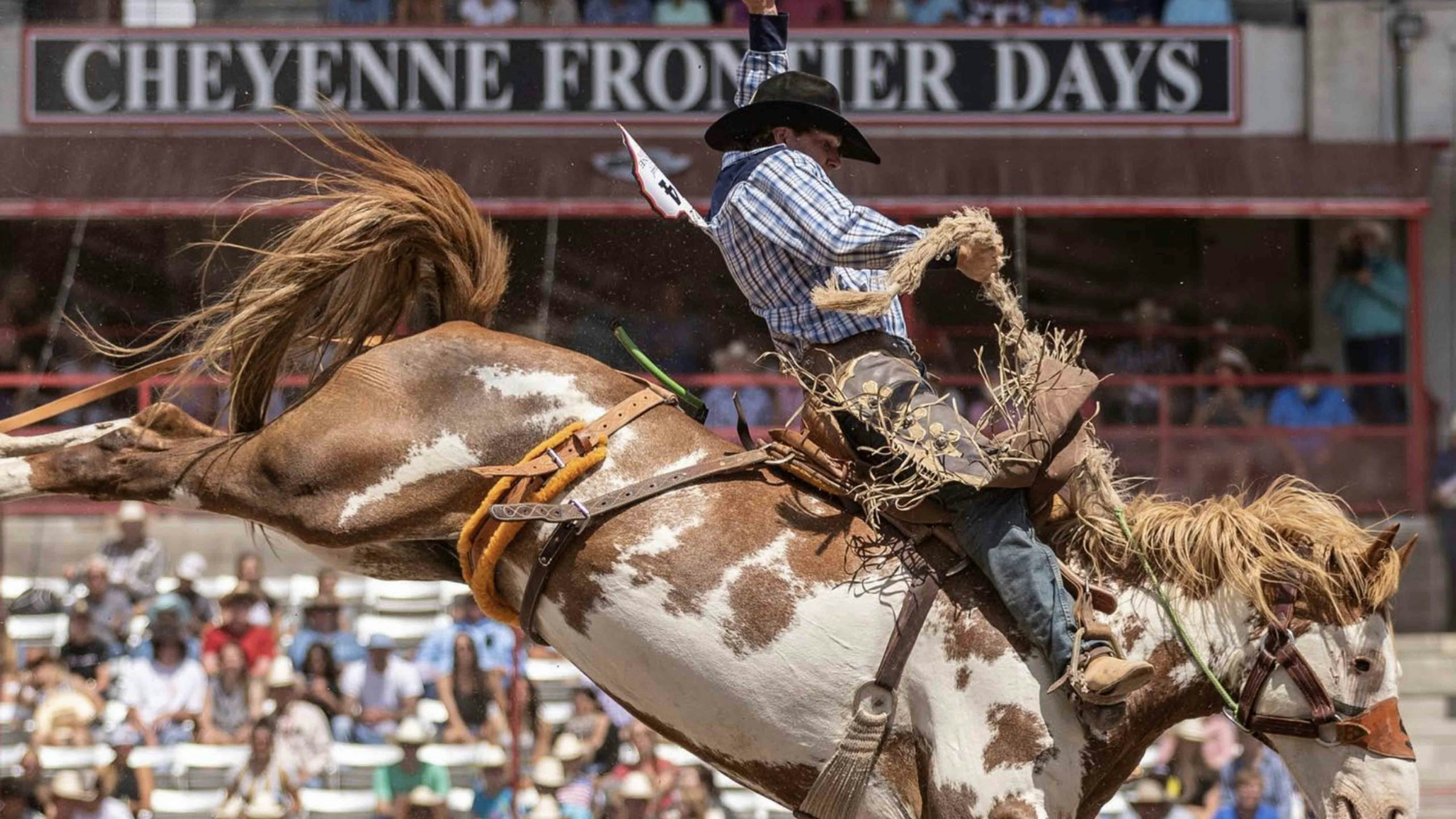Efforts to ban rodeo in some California communities will spread to Wyoming eventually, according to a national animal-rights advocate.
Leaders in Alameda County, California, recently banned wild-cow milking, a timed event in which athletes rope and milk lactating cows that are unaccustomed to human handling.
The event is not popular at Cheyenne Frontier Days, Wyoming’s largest rodeo.
Years ago, Alameda County also banned mutton busting, in which children ride sheep.
The city council in Los Angeles also is contemplating an ordinance that could eliminate rodeo altogether within city limits: a ban on rodeo equipment
“Wyoming is going to be impacted because the country is being impacted as people become more concerned about the care and treatment of animals,” said Steve Hindi, president of Showing Animals Respect and Kindness (SHARK).
Hindi said he’s not outright opposed to rodeo, but believes it’s fraught with inhumane practices “behind the scenes.”
If these practices, such as using electric-shock rods during horse races, were eliminated altogether, the rodeo industry would face less pressure, Hindi said, but it can’t reverse the course of growing opposition now.
“Whether it comes from California or from another direction, the change is coming – regardless,” said Hindi.
Wyoming’s Big Rodeo
Cheyenne Frontier Days bills itself as the World’s Largest Rodeo.
Locals and tourists flock to Cheyenne every July for the massive event, which also features concerts, concessionaires and other events.
Tom Hirsig, Cheyenne Frontier Days CEO, also believes actions in California will impact Wyoming if California cities start shutting down rodeos. But unlike Hindi, he hopes it doesn’t.
“As some of the states or some of the counties start taking things like that away, you never know what other entities are going to do,” said Hirsig. “It’s certainly not something we like to see, because in California there are some very historic-type rodeos that take place.”
Hirsig referenced the Bill Pickett Invitational Rodeo, which features the talents of African American cowboys and cowgirls to “celebrate Black Western heritage,” according to the organization’s website.
One of the rodeo’s main events happens in Oakland, the county seat of Alameda County.
“(The ban movement) does threaten the Western way of life to a certain degree,” said Hirsig, adding that he hopes that this is one California movement that doesn’t reach Wyoming.
Western Heritage
Hirsig said rodeo is a celebration of Western living.
“Rodeo evolved out of the Western culture from ranches years ago,” he said. Team roping is similar to roping a sick or injured animal miles from a corral, he said.
“You have to figure out how to doctor that animal, out in the pasture. Team roping is a way they do it,” he said. He also noted that roping is used when tagging calves and performing other ranch duties.
Bucking-horse events came from horse-taming practices. Bull-riding, however, might be more of a test of manhood, said Hirsig.
“I doubt they (ranchers) just get on bulls for the heck of it, but it came out of a competition of who could ride a bull, and who could ride one the best,” he said.
‘Perversion’
Hindi disagreed, saying that though rodeo has origins in ranch practices, people now have more humane ways of doing some of those chores. He pointed to Monty Roberts, a California-based horse-trainer who emphasizes gentle taming methods.
“There used to be a presumption that rodeo was an American tradition, family entertainment,” said Hindi. “But it’s a perversion of ranch history, and it’s not family entertainment.”
Hindi clarified that he doesn’t care if rodeo exists, “so long as there’s not cruelty.”





